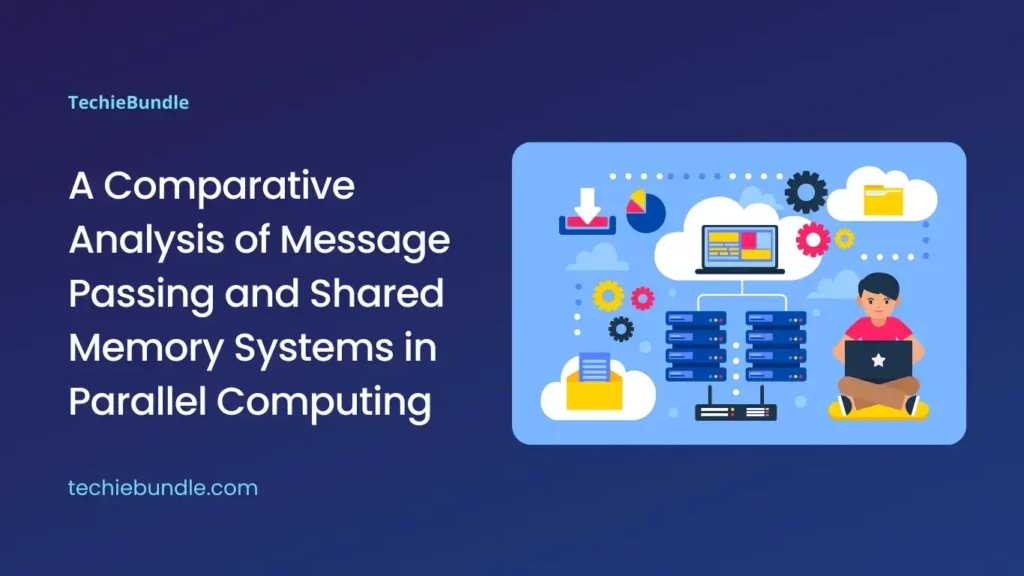Introduction: Message Passing and Shared Memory Systems
In the realm of parallel computing, the choice between message passing and shared memory systems plays a pivotal role in determining the performance and efficiency of a parallel application. These two paradigms represent distinct approaches to facilitating communication and data sharing among concurrent processes or threads within a computing environment.
In this article, we will delve into the characteristics, advantages, and drawbacks of both message passing and shared memory systems.
Message Passing System
Message passing is a communication model where processes exchange information by sending and receiving messages. This paradigm is well-suited for distributed memory architectures, where each processor has its own local memory. The processes communicate explicitly through messages, allowing them to coordinate and synchronize their activities. Popular message passing interfaces include MPI (Message Passing Interface) and OpenMPI.
Advantages of Message Passing System
- Scalability: Message passing systems excel in scalability, making them suitable for large-scale parallel computing. As the number of processors increases, message passing systems can efficiently manage communication and coordination among distributed nodes.
- Decoupled Memory: Since each processor has its own local memory, message passing systems provide a natural way to handle data distribution across nodes without the need for a shared memory space.
- Fault Tolerance: Message passing systems often exhibit robust fault tolerance capabilities. If a node fails, the rest of the system can continue to operate, minimizing the impact of a single point of failure.
Drawbacks of Message Passing System
- Complexity: Developing applications in a message passing environment can be more challenging due to the explicit management of message passing. Developers need to handle message passing and synchronization explicitly.
- Communication Overhead: Message passing introduces communication overhead, as processes need to serialize and deserialize data for message exchange. This can impact performance, particularly for fine-grained communication.
Shared Memory System
In a shared memory system, multiple processors or threads have access to a common address space, enabling them to share data through shared variables. This paradigm is well-suited for architectures with a centralized memory pool, such as multi-core processors. OpenMP is a widely used API for shared memory programming.
Advantages of Shared Memory Systems
- Simplicity: Shared memory systems offer a more straightforward programming model since processes can communicate through shared variables. This simplicity can lead to easier development and debugging.
- Performance: For applications with a high degree of data sharing and low communication requirements, shared memory systems can exhibit better performance compared to message passing systems. This is due to the reduced overhead associated with data sharing.
Drawbacks of Shared Memory Systems
- Limited Scalability: Shared memory systems may face scalability challenges as the number of processors increases. Accessing a shared memory space becomes a bottleneck, and contention for resources can impact performance.
- Synchronization Challenges: Coordinating access to shared variables requires careful synchronization mechanisms to avoid data corruption or race conditions. This complexity can increase as the number of threads grows.
Conclusion
The choice between message passing and shared memory systems depends on the specific requirements of a parallel application, the underlying architecture, and the development team’s expertise. Message passing systems are well-suited for large-scale, distributed computing, offering scalability and fault tolerance. On the other hand, shared memory systems provide simplicity and can perform well in scenarios with limited communication requirements.
In practice, hybrid models that combine aspects of both paradigms are increasingly common, aiming to leverage the strengths of each approach. Understanding the trade-offs and characteristics of message passing and shared memory systems is crucial for making informed decisions in parallel computing environments. Additionally, explore the significance of what is deadlock in OS to enhance your understanding of potential challenges in parallel computing.



